What is CBD? Everything you need to know
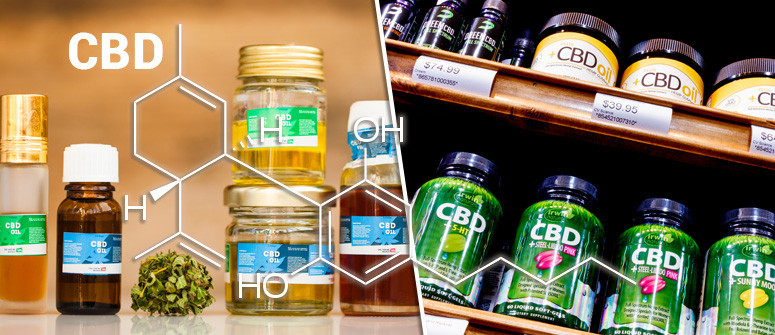
Cannabidiol is on everyone's lips (pardon the pun), but why is it so popular? Versatile, safe, and with a host of potential uses, there's good reason that people love CBD so much. Become acquainted with everything you need to know about the cannabinoid, at a glance, in this guide.
Contents:
- What Does "CBD" Mean?
- Where Does CBD Come From, and Who Sells It?
- How Does CBD Work, and How Does It Make You Feel?
- What Are the Potential Benefits Of CBD?
- Is It Safe To Take CBD?
- Is CBD Legal?
- How To Use and Dose CBD?
- How Is CBD Oil Manufactured?
- What To Do When CBD Is Not Working?
- Will CBD Show Up on a Drug Test?
- Can You Give CBD to Pets?
- Should You Try CBD?
If you’re interested in trying CBD, or just wondering what all the hype is about, you’re in the right place. This article will give you a rundown on everything you need to know about CBD, and help you decide whether it’s right for you!
What Does "CBD" Mean?
CBD, or cannabidiol, is one of the 113+ cannabinoids found in the cannabis plant; the most famous of these being THC (Δ-9-tetrahydrocannabinol). Unlike THC, which is responsible for the high associated with cannabis, CBD does not get you high. This does not mean it is without effects, though.
In fact, CBD is suspected to have a whole host of effects, many of which are being investigated for their therapeutic and medicinal potential.
Where Does CBD Come From, and Who Sells It?
3.jpg)
CBD comes from the cannabis plant. In practice, though, a large share of CBD is derived from the hemp plant specifically. The distinction between hemp and cannabis is primarily a legal one. The former may contain no more than 0.2 or 0.3% THC, depending on the jurisdiction.
Cannabis plants, then, tend to be those containing above this threshold of THC. So cannabis is grown for its psychotropic properties, whereas hemp is grown mostly for its fibres. That was, until interest in CBD began to blossom.
Hemp plants tend to have higher concentrations of CBD than most cannabis plants, as cannabis has been bred to exhibit a much greater volume of THC.
When purchasing CBD products, it’s important to buy from a reputable seller. How and where the plants are grown matters a lot in the modern world. Disreputable sellers or poor-quality manufacturers are unlikely to accurately report cannabinoid content, so you won't know what you are really taking. Sellers such as Cibdol are a safe bet for all things CBD.
How Does CBD Work, and How Does It Make You Feel?
CBD works primarily by indirectly influencing the endocannabinoid system (ECS). The ECS is a network that runs throughout the human body and plays a role in everything from cognition, to motor control, to homeostasis, and more. Basically, the ECS is vital to proper functioning.
Unlike other cannabinoids, which bind directly to receptors in the endocannabinoid system—e.g. THC to the CB1 receptor—CBD inhibits FAAH, a fatty acid responsible for breaking down anandamide. Anandamide, also known as the bliss molecule, is a naturally occurring endocannabinoid produced in the body that induces feelings of happiness, euphoria, and calm. By inhibiting its breakdown, CBD increases levels of anandamide in the body—with potentially positive effects.
In terms of how it makes you feel, this is hard to answer. While it’s non-intoxicating, and therefore does not cause a “high”, it can nevertheless cause a noticeable, albeit subtle, feeling. CBD users describe the sensation in different ways, one of which is that it "takes the edge off".
What Are the Potential Benefits Of CBD?
The potential health benefits of CBD are manifold, and largely unproven. Research is still ongoing in all areas, and so we can only mention what is being studied, and the direction these studies are headed, rather than make claims about if CBD is a viable treatment for a given ailment.
Research is being conducted into CBD’s potential therapeutic uses for:
- Anxiety
- Depression
- Inflammation
- Insomnia
- Chronic pain
- Addiction
- Cancer
For which of these conditions CBD ends up being a viable treatment remains to be seen. What is certain, though, is that the future of CBD is bright, and it is likely we’ll be hearing more about its potential medical uses in the future.
Unlike the above, one area in which CBD is currently accepted as a medical treatment is for severe forms of treatment-resistant epilepsy—namely, Dravet syndrome and Lennox–Gastuat syndrome. The FDA-approved drug Epidiolex is prescribed for this purpose, and contains cannabidiol as its active ingredient, but is only available in select countries.
Is It Safe To Take CBD?
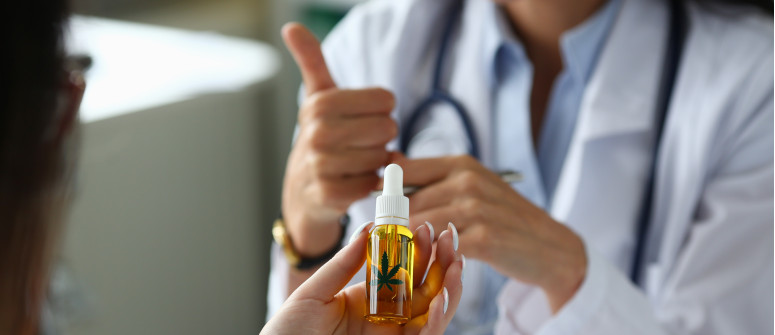
On the whole, CBD is considered a safe substance. Nevertheless, research is ongoing, and it’s always important to exercise caution and listen to your body when taking any substance. If it makes you feel bad, mentally or physically, stop taking it and reconsider.
There are some fairly minor side effects associated with CBD:
- Low blood pressure
- Dry mouth
- Fatigue
- Headaches
- Changes to appetite or weight
For those who are pregnant or breastfeeding, the FDA strongly advises against using CBD, or any cannabis products. Simply put, the effects of cannabidiol on the brains of unborn or newly born babies are just not known—and therefore it’s far better to err on the side of caution!
Is CBD Addictive?
CBD is not an addictive drug. In fact, some studies indicate that CBD may actually be a powerful tool in the arsenal for fighting existing drug addictions, such as opioid addiction—although this too is yet unproven.
Can You Get a Hangover From CBD?
CBD will not cause a hangover in the sense of alcohol or other intoxicants. Unless you are suffering from side effects, you shouldn’t feel rough or unwell after taking CBD. Actually, it’s possible that CBD will help alleviate some of the feelings of a hangover.
Even if it’s unlikely to make you feel unwell, that’s not to say it won’t have any residual feeling. Some people report feeling groggy or cloudy the day after taking CBD. Even though this may not be a bad feeling per se, it may well not be desirable for some people. So it’s worth noting how you feel afterwards.
Can You Take CBD and Drive?
It is legal to take CBD and drive, and mostly it is considered safe. As it’s non-intoxicating, it shouldn’t impact most people’s driving. But it is always advisable to try it a few times when you’re not behind the wheel to see how it affects you personally. For some people, fatigue is one of the effects of CBD, and driving while fatigued is never wise. So work out how it makes you feel, and exercise your best judgement.
Is CBD Legal?
The legal status of CBD is, unfortunately, somewhat fraught. In most countries, CBD itself is legal. However, it could be present in a plant with over the legal amount of THC, in which case the product would be illegal. This is one of the reasons it’s so important to buy from a good manufacturer—lest you find yourself inadvertently carrying around illegal drugs.
For more information about the specifics of international drug laws, take a look over the UN convention of psychotropic substances, 1971.
Can You Travel With CBD?
If you’re taking CBD from one country to another, you must check the local laws. Legal THC levels vary within Europe and across the wider world, and a product that is legal at home may not be once you enter another country.
How To Use and Dose CBD?
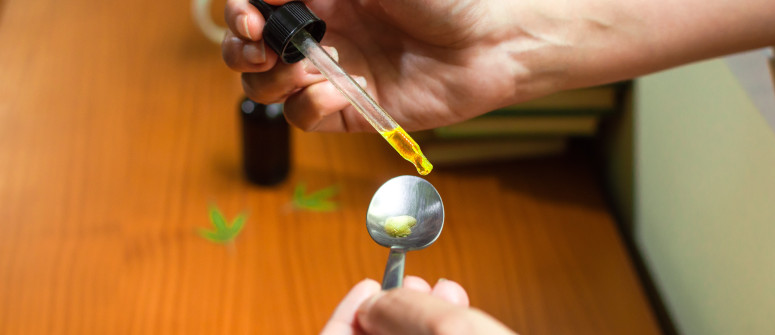
There are many ways to take CBD, each with their own pros and cons:
- Oils (sublingual or oral)
- E-liquids (vaping)
- Edibles (ingestion)
- Flowers or concentrates (smoking or vaping)
- Creams or lotions (topical)
The most popular intake methods for CBD are vaping and consuming oil-based products—either by swallowing it or dropping it under the tongue. CBD oils tend to come with droppers that allow you to accurately administer your chosen dose of cannabidiol. This, plus the speed and ease of taking it, makes it perfect for use on the go, and for those who don’t want it to take up too much time or space in their lives.
Vaping is harder to dose, but it can be pleasurable, and a good option for those used to smoking/vaping or who want to move away from THC-rich weed.
Edibles are becoming more popular, and come with the benefits of easy dosing and long-lasting effects. They are also a good option for those who are not used to smoking and may not want to be outwardly associated with cannabis products.
Probably the least common option, CBD flowers and concentrates are enjoyed in the same ways as THC-rich cannabis, only without the THC! Bongs, pipes, joints, and dab rigs are all viable options. A great option for those who also love smoking weed, and a great way to slowly move away from THC.
There’s also the topical option; that is, applying creams, lotions, salves, or CBD oil itself to the skin. Although the CBD won’t make its way into your bloodstream, your skin may benefit from localised effects.
Will CBD Oil Break a Fast?
This depends on how you take CBD, and how strict your fast is.
If you take a CBD edible, then yes, it will break your fast. CBD oil is more contentious, though. While it contains some calories, this will be negligible. So if you are determined to ingest absolutely zero calories during your fast, perhaps opt for a vape. If, however, you’re happy to ingest a few calories, then taking full-spectrum CBD oil shouldn’t be problematic. It’s certainly not going to fill you up!
Are CBD Oil and Hemp Oil the Same?
No, despite coming from the same plant, CBD oil and hemp oil are not the same. CBD oil is an extract derived from the trichomes (resin-producing glands found on the flowers), which is then diluted in a food-grade carrier oil—such as olive oil, MCT oil, or even hemp oil. That’s the distinction; hemp oil is a nutritional product derived from hemp seeds—not trichomes—and doesn't contain active cannabinoids. As such, it makes the perfect carrier oil for CBD extract, or to be ingested on its own. Hemp oil is highly nutritious and can be found on the shelves of many health food stores—but it doesn’t contain CBD.
Which CBD Product Is Best for Me?
Ultimately, all worthwhile CBD products offer the same thing: high-quality CBD. So, deciding which is best for you mostly depends on how you want to take it. Each has its pros and cons, and figuring out which works best for you is a personal decision. That being said, it’s best to source products from reliable manufacturers who use independent testing to ensure you don’t start your CBD journey with a subpar product.
How Is CBD Oil Manufactured?
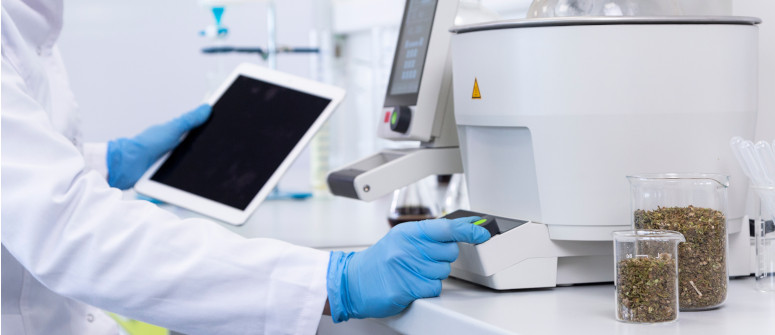
As mentioned, CBD oil is composed of CBD extract and a carrier oil of some kind. To extract CBD (and other cannabinoids) from the cannabis/hemp plant, a solvent needs to be used. The gold standard on a commercial level is supercritical CO₂, as it is considered more efficient, “cleaner”, and more sustainable than other methods. As a result, it is one of the most costly.
This solvent is then evaporated, leaving the CBD extract behind, which is then added to a food-grade carrier oil.
It is also possible to make CBD extractions at home using either hemp or cannabis as your raw material, and alcohol or oil as your solvent. Pick your plant matter and get going!
Why Is CBD Oil So Expensive?
Creating high-quality full-spectrum CBD oil is an involved process, requiring many stages and quality assurance measures. Therefore, unfortunately, good CBD oil can also be fairly expensive. This is not a ploy to extract large sums of money from people; it’s just a fairly expensive product to create. One of the reasons is that quality CBD companies will subject their products to third-party testing to ensure a lack of contaminants and accurate cannabinoid and terpene breakdowns. Hopefully, as time goes on and cannabis products become more widespread, we will see prices drop.
What To Do When CBD Is Not Working?
If CBD isn’t working for you, there are a few things you can do. First, you can try upping the dosage. CBD dosage is not well-understood, so doing some experimenting may be necessary to find what works best for you.
Changing the method of ingestion may also help. Vaping it, for instance, is a more powerful way of taking it, but is shorter-lasting, whereas eating it will be less powerful, but longer-lasting.
Also, you have to assess what you are trying to achieve from cannabidiol. Despite it being likely that CBD has health benefits, it is by no means a cure-all, and there is only so much it can do. So you might just have to temper your expectations. It may well be able to assist with something, but it’s unlikely to fully eradicate a problem on its own.
Will CBD Show Up on a Drug Test?
On the whole, if you’re taking CBD products that have below 0.2/0.3% THC, you shouldn’t test positive on a drug test. That is, unless you’re consuming over 2 grams a day. THC drug tests look for a metabolite called THC-COOH, which shouldn’t be present in high concentrations after taking most legal CBD products.
Again, though, this is another reason that buying high-quality CBD products is so important. If a bad product tips over the 0.3% threshold, the chances of showing up positive are much higher.
Can You Give CBD to Pets?
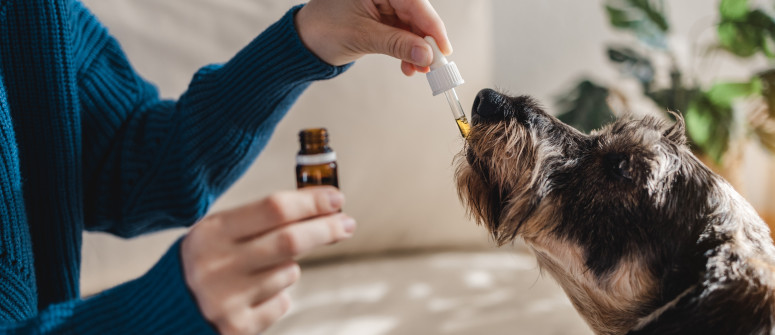
CBD is considered safe to give to pets, and many people use it for their dogs—for events such as fireworks night. If you intend to give it to an animal, though, remember they can’t consent, so keep a close eye on whether it causes them any negative effects and act accordingly. Also, remember that most pets tend to be much smaller than us, so adjust the dosage accordingly!
Better yet, talk to your pet's vet before you administer any CBD product, as they are likely to be aware of the hype surrounding this cannabinoid for pets, and can offer you guidance to suit.
Should You Try CBD?
Only you can answer this. But what is worth pointing out is that CBD does not cause a high and has few side effects; so even if you try it and don’t like it, it’s not the end of the world. So in that sense, if you’re intrigued, it probably is worth a go.
We at CannaConnection have a wealth of information about CBD, and if you invest a little time in reading it, you should find yourself well-informed to make a decision.
.jpg)
.jpg)

.jpg)
